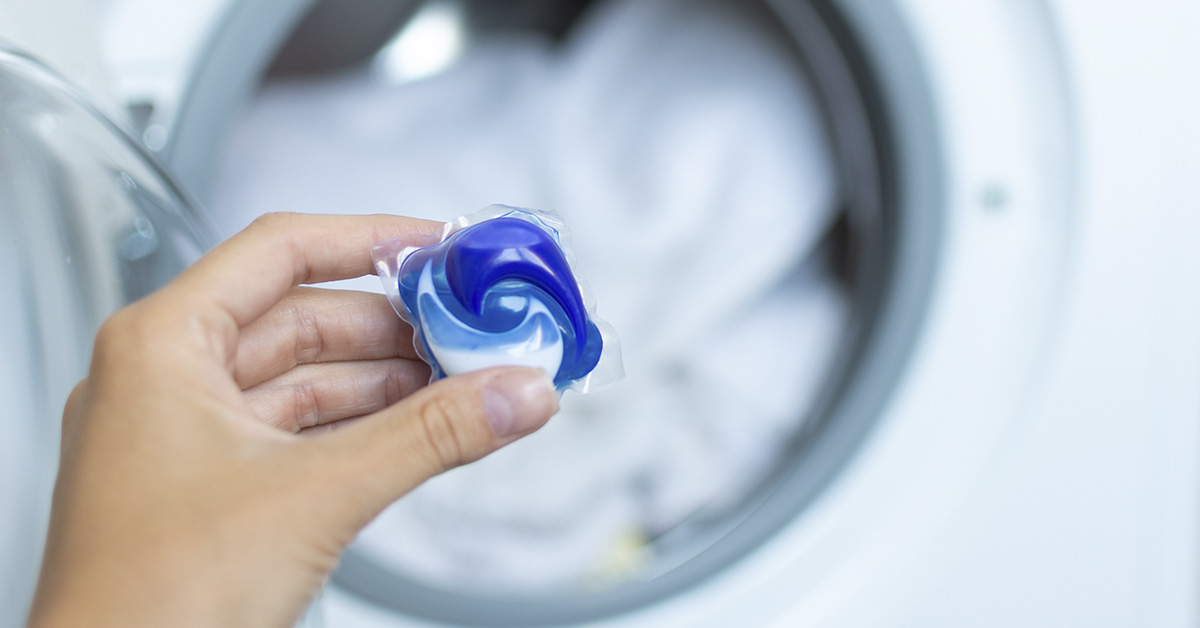New York City is in the midst of a potential environmental crackdown as lawmakers deliberate the banning of detergent and dishwasher pods.1 No, it isn’t because kids are eating them again (remember that?), it’s a fair more reasonable problem. City Councilman James Gennaro has spearheaded an initiative bib introducing a “Pods are Plastic Bill,” aiming to restrict the sale of pods that contain polyvinyl alcohol (PVA).
Polyvinyl alcohol, commonly found in detergent pods, has come under scrutiny due to its environmental impact. Despite its ability to dissolve in water, PVA breaks down into microplastics, contributing to water pollution. Gennaro addressed emerging concerns on how everything is being handled, stating that PVAs “are the most concerning of emerging contaminants, [and] it’s important for people to know we’re being very cautious and we’re taking a science-based approach”.
The Concerns vs The Convenience of Pods
While detergent and dishwasher pods do create convenience and efficiency in household chores, concerns about their environmental repercussions persist. Companies marketing PVA-based products do their best to highlight the convenience and environmental friendliness their products display, but critics argue that the proliferation of microplastics poses significant risks. The proposed ban reflects a growing awareness of the need to balance consumer convenience with environmental sustainability.
As consumers become more informed about the environmental impact of these products, they will be able to make conscious choices to opt for alternatives that are less harmful to the environment. Initiatives like educational campaigns, informational materials in stores, and community outreach programs can help raise awareness about the environmental consequences of using PVA-based pods.
As discussions around the Bill continue, stakeholders are grappling with finding solutions that prioritize environmental protection without compromising the consumer convenience already established.2 The potential ban reflects a broader trend of cities and businesses taking proactive measures to address plastic pollution and promote sustainability.
Advocacy and Legislative Action
Blueland, a home cleaning products maker, has been a vocal advocate for banning detergent pods containing PVA. They have done research highlighting the impact of pods, which prompted legislative action in New York City.
The ban has sparked responses from industry stakeholders and consumers alike. Companies like Procter & Gamble Co. emphasize the safety of PVA-based products and question the validity of claims regarding their environmental impact. On the other hand, Fast Company wrote a piece saying advocacy groups and environmental organizations support the ban and have cited scientific evidence of the harmful effects microplastics cause.3
Ultimately, addressing this pod issue will likely require collaborative solutions and legislative action. If there needs to be real and lasting change, consumers, companies, and legislation must all work together to implement policies that regulate the production, distribution, and disposal of plastic products. By enacting legislation like the “Pods are Plastic Bill,” policymakers can send a clear message about the importance of protecting the environment and reducing plastic pollution. In an ideal world, this bill covers more than just the microplastics found in dishwasher and detergent pods, but that is a conversation for another time.
Future Implications and Global Perspectives
The outcome of the ban could have far-reaching implications for environmental policy and consumer behavior. If successful, similar initiatives may emerge in other cities (and maybe other industries that use microplastics), leading to a widespread adoption of sustainable practices.
Internationally though, there is now a debate on whether detergent pods reflect broader plastic pollution and the need for collective action. Countries around the world are exploring strategies to reduce plastic waste and promote eco-friendly alternatives, signaling a global shift towards sustainability. Now let us see if any actual legislation comes from it.
The debate surrounding New York City’s potential ban of pods with PVA underscores the intersection of environmental policy, consumer behavior, and corporate responsibility. By engaging in the conversation and promoting sustainable alternatives, stakeholders can work together to address plastic pollution and protect the planet for future generations.
Read More: Top 7 Natural Alternatives For Bleach and DIY Household Cleaner Recipes
Sources
- “NYC may ban detergent packs including Tide PODS in latest ‘green’ crackdown — with fines up to $1,200 for selling them.” NY Post. Craig McCarthy. February 12, 2024.
- “New York City Is Considering a Laundry Pods Crackdown.” Bloomberg. Kendra Pierre-Louis. February 8, 2024.
- “Blueland teams up with NYC for a first-of-its-kind bill to ban detergent and laundry pods.” Fast Company. John Kell. February 8, 2024.

